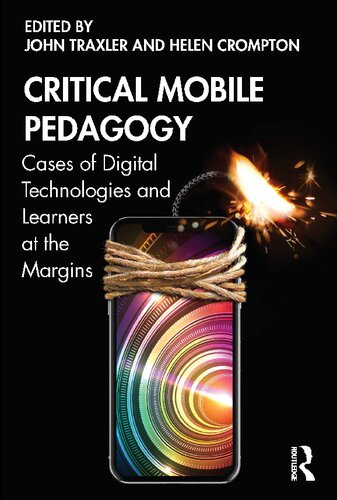

Most ebook files are in PDF format, so you can easily read them using various software such as Foxit Reader or directly on the Google Chrome browser.
Some ebook files are released by publishers in other formats such as .awz, .mobi, .epub, .fb2, etc. You may need to install specific software to read these formats on mobile/PC, such as Calibre.
Please read the tutorial at this link. https://ebooknice.com/page/post?id=faq
We offer FREE conversion to the popular formats you request; however, this may take some time. Therefore, right after payment, please email us, and we will try to provide the service as quickly as possible.
For some exceptional file formats or broken links (if any), please refrain from opening any disputes. Instead, email us first, and we will try to assist within a maximum of 6 hours.
EbookNice Team

Status:
Available4.4
37 reviewsCritical Mobile Pedagogy is an exploration of mobile technologies for designing and delivering equitable and empowering education around the globe. Synthesizing a diverse range of projects and conceptual frameworks, this case-based collection addresses the ambitions, assumptions, and impacts of interventions in under-researched, often disadvantaged communities.
The editors and authors provide a nuanced and culturally responsive approach to showcasing:
indigenous, nomadic, refugee, rural, and other marginalized communities
emerging pedagogies such as curation, open resources, massive open online courses (MOOCs), and self-directed learning
contextual factors, including pedagogy, ethics, scaling, research methodology and culture, and consequences of innocuous or harmful implementation and deployment
the nature of participation by global capital, multinationals, education systems, international agencies, national governments, and telecoms companies.
Scholars, academics, policymakers, and program managers are increasingly using mobile technologies to support disadvantaged or disempowered communities in learning more effectively and appropriately. This book’s diverse research precedents will help these and other stakeholders meet the challenges and opportunities of our complex, increasingly connected world and work with greater cultural and ethical sensitivity at the intersection of education, research, and technology.